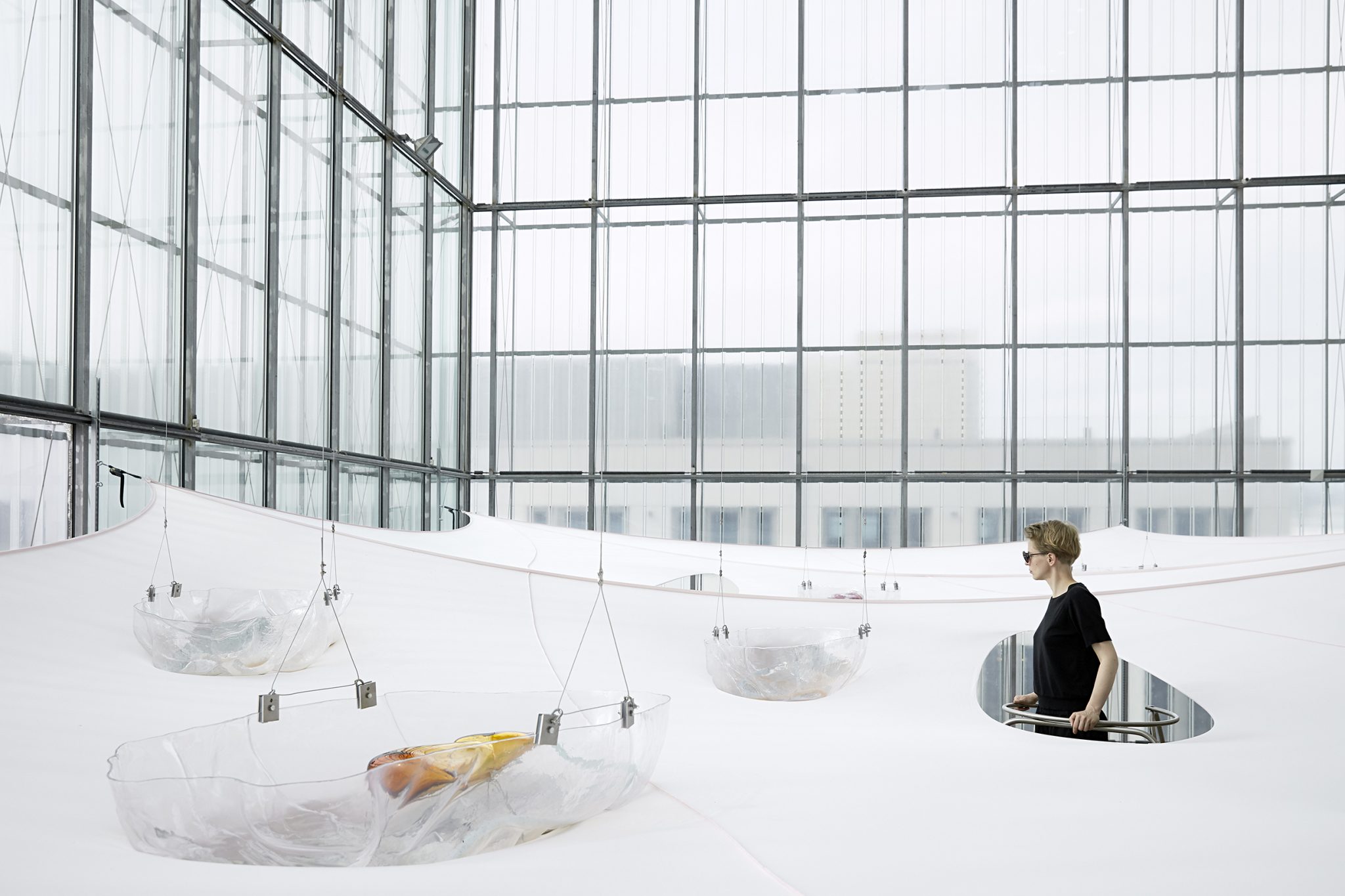Whether biopower is a good frontier or a bad one, the Lithuanian artist duo are here to remind us that we’ve crossed into unknown territory
In the summer of 2019, Lithuanian artist duo Pakui Hardware set up a spacious installation titled Underbelly in Leipzig’s Museum der Bildenden Künste (MDBK). You walked in beneath a translucent membrane studded with holes, eight of which contained large, thermoformed plastic shapes that looked like transparent rowboats. In these, as you could see if you looked into them or if you climbed ladders to poke your head through other holes, were coloured-glass renderings of organlike shapes and silicone arteries that gave the impression they were being ‘grown’ in giant Petri dishes. Black, spore- like shapes within them turned out to be chia seeds: these organs-without-bodies (to invert Gilles Deleuze) were apparently mainlining superfood energies. The whole had the feel of a reveal in any one of a continuum of science-fiction films – from the industrial cannibalism of Soylent Green (1973) to the human batteries of The Matrix (1999) to the organ-donating clones of Never Let Me Go (2010) – in which human bodies are repurposed to serve new agendas.
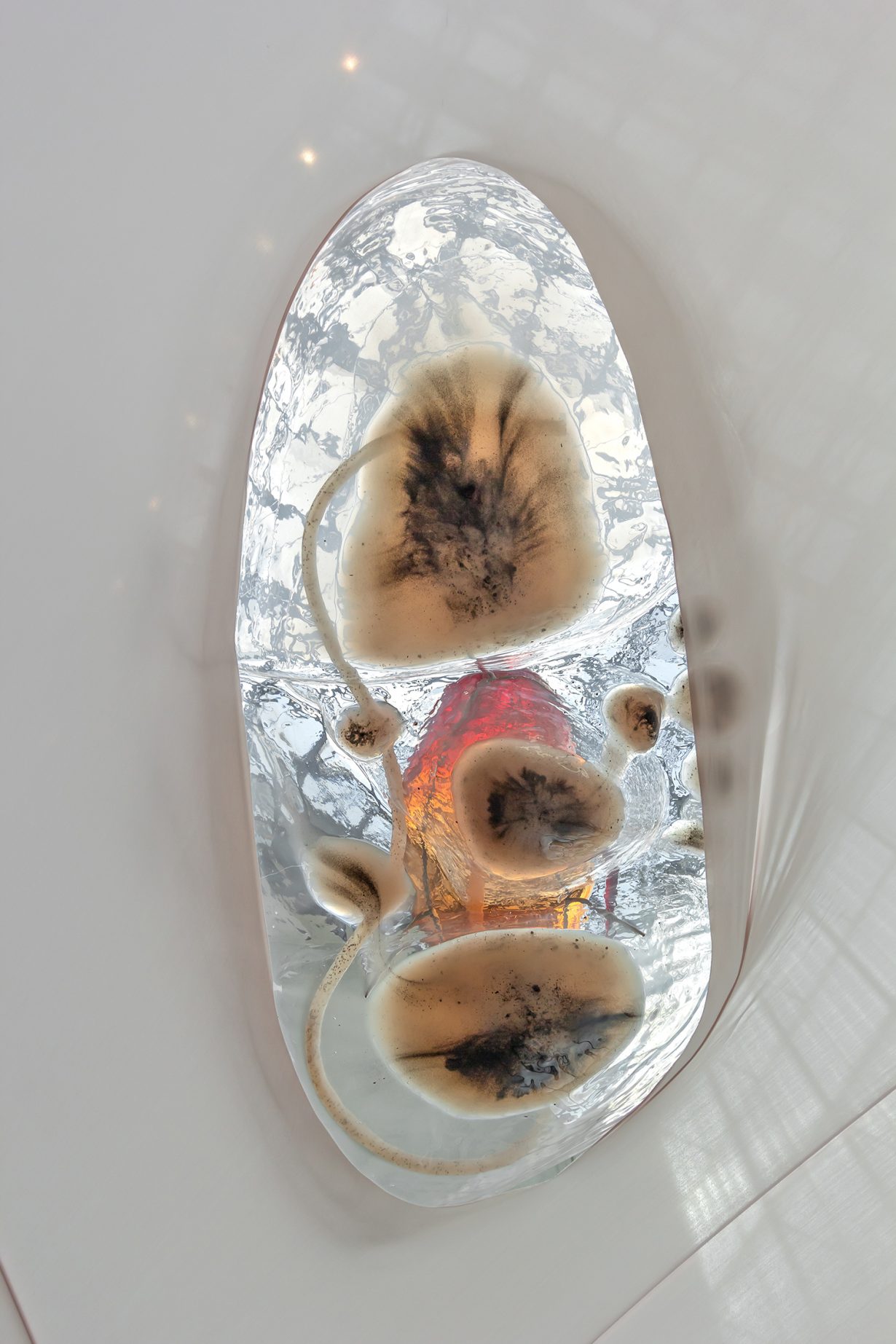
But Neringa Černiauskaite and Ugnius Gelguda, who have worked together as Pakui Hardware since 2014, aren’t interested in pat dystopian positions. Their adopted name conjoins a reference to the mythological Hawaiian runner Pakui – who supposedly could circle the island of Oahu six times a day – with a nod towards the means to augment oneself beyond ‘standard’ corporeal limits. This kind of process, you’ve surely noticed, is already taking place: the next decade is likely to be a rocketing era of interventionism in terms of the human body, one that stands to cleave the human race into new breeds of genetic haves and have-nots, from designer babies to tailored organs to, if Yuval Noah Harari’s 2016 book Homo Deus is to be trusted, something like immortality for the lucky few. At present, though, biopower is the latest front in capitalist extraction. Via the amorphous ‘quantified self’ movement, individuals are increasingly conditioned – via all kinds of self-tracking apps and wearables, and online networks that ask people for health data in return for medical advice – to see their bodies as inseparable from technologies. The latter, in turn, serve the interests of Big Data and the general drive to harvest and monetise vast amounts of information on what we are doing in order to predict and determine what we will do in the future.
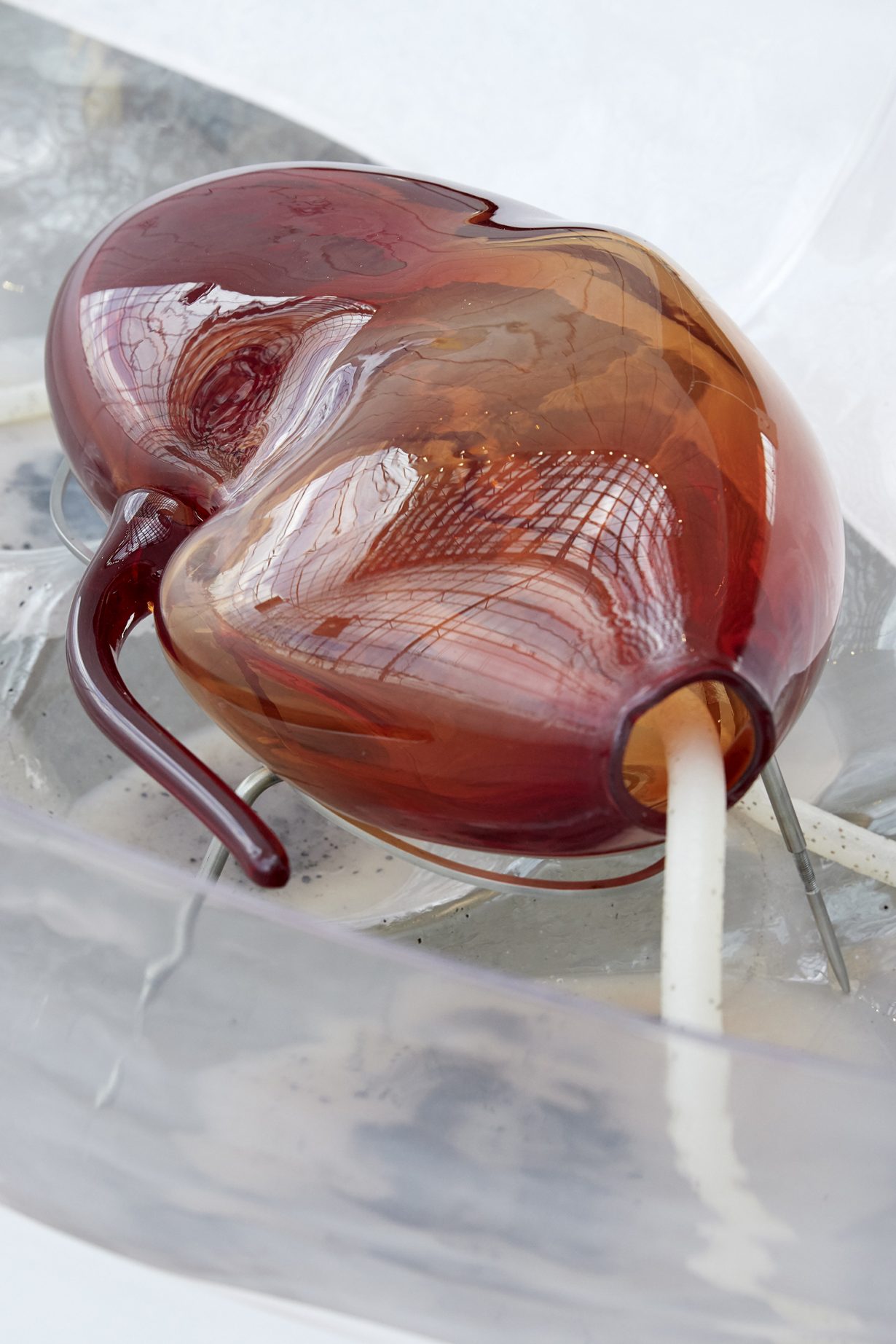
In the pseudo-medical hybrids that populate their installations of the last three years in particular, Pakui Hardware cast a cold eye on all this: it’s here and it will warp further, they postulate – reasonably, since if one country bans a procedure on ethical grounds, it creates an impetus for other, more mercenary states to allow it. Pakui Hardware’s simulated, attenuated laboratories, while chilly, suggest that there’s perhaps nothing much to be done except articulate present and near-future conditions, increase awareness – which might be a political act in itself, if you unstrap your Fitbit afterwards – and try to take a long, balanced view. Sometimes, as in the installation Extrakorporal (2018-20), its organic glass forms serve as part of ritual assemblages, wall-mounted or ceiling-hung works in which animal furs dangle and droop while the glassworks serve as ersatz heads or stomachs. These suggest that the desire to exceed the body’s bounds goes back to shamanism, and is thus ‘natural’ – the questioning of where the natural ends being a key part of the artists’ inquiry.
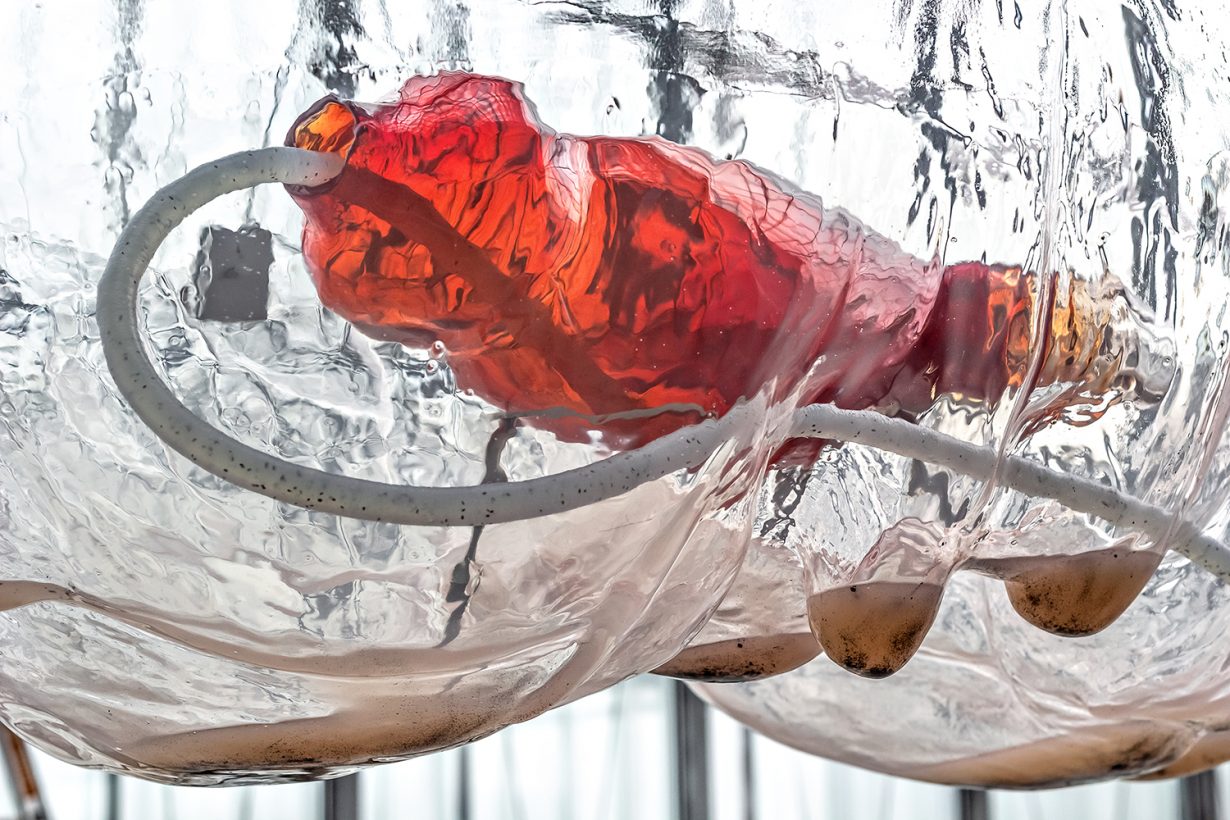
For example, these glass shapes also mimic the form of the horse-shoe crab, whose blood can be extracted to detect toxins and that has lately been used in making COVID-19 vaccines. Ingenuity in exceeding human bounds and preserving and extending life, such works suggest, is adaptable to whatever technologies exist at the time; and just as psychotropics are making a comeback in treating depression, PTSD and more, future science may well be a combination of modern and ancient approaches.
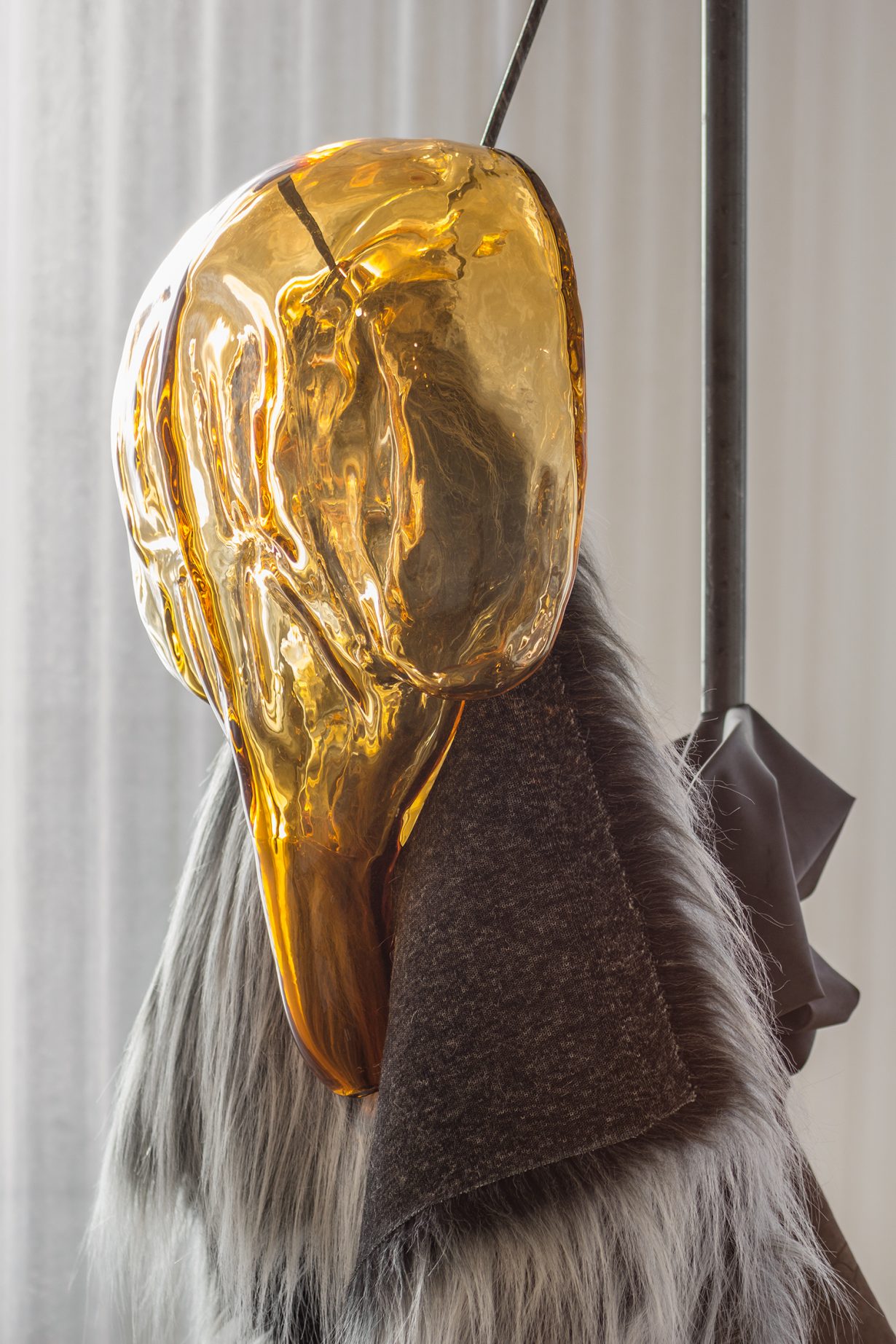
This sense of bodily mutability as intellectual territory for art (as well as a battleground for science, morality, human rights) has increasingly come to the fore in recent years: witness, for example, last year’s group show at NGBK Berlin Radical Passivity: Politics of the Flesh, which, like Pakui Hardware’s own work, makes an aesthetic connection between the present day and Postminimalism, with its sense of the body as a mortal, drooping, flawed chamber as well as a site of various kinds of politics. In that exhibition, while the focus was partly on the contemporary fluxions of gender identity, works by Paul Thek and Lee Lozano appeared; Pakui Hardware, though, prefer to invoke Eva Hesse, Lynda Benglis and Alina Szapocznikow as well as lesser-known figures such as Joachim Bandau. ‘Flesh’, in this sense, is a container; what’s inside it –lab-grown organs, say, or the brain – is mutable, changeable.
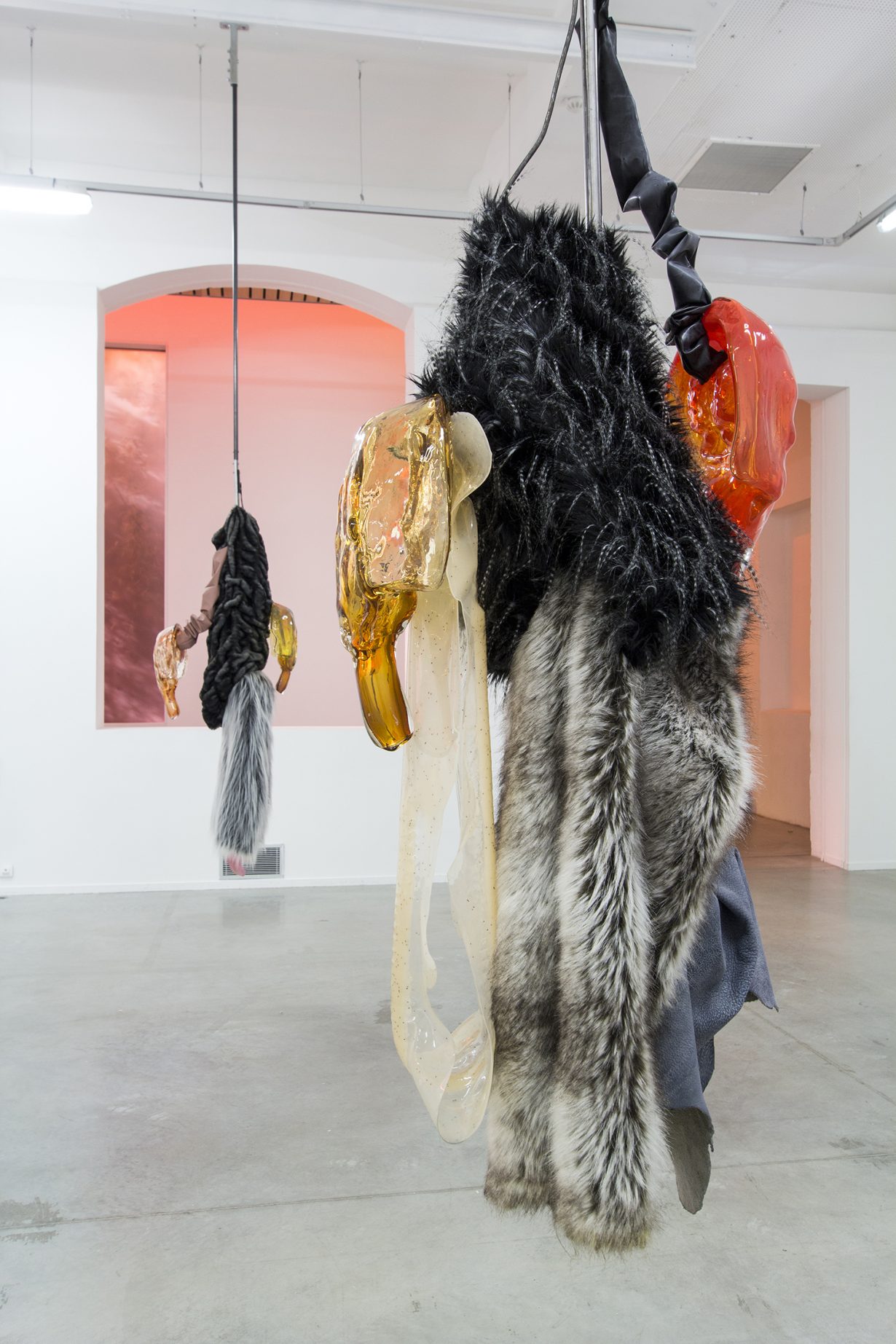
Photo: Ugnius Gelguda. Courtesy the artists and Carlier/Gebauer, Berlin & Madrid
In Absent Touch (2020), their solo show at Berlin’s Carlier / Gebauer, the artists set up something of a dreamlike operating room denuded of doctors or, indeed, humans, except for the occasional hand-holding forceps – like an echo of former times – on a set of photographs. In the centre of the room, on three gurneylike structures, were sculpted drapery-shaped forms, variously white, flesh-coloured and deep black, covered with inverted ‘dishes’ similar to those in Underbelly, beneath which was more sporelike chia. On top of said dishes, meanwhile, were smaller, unnerving hybrids of glass – shaped somewhat like leeches – that sometimes themselves toted surgical instruments. The backdrop here was the spectre of ‘remote care’, which encompasses surgery by robots, diagnosis by AI ‘doctors’, etc.
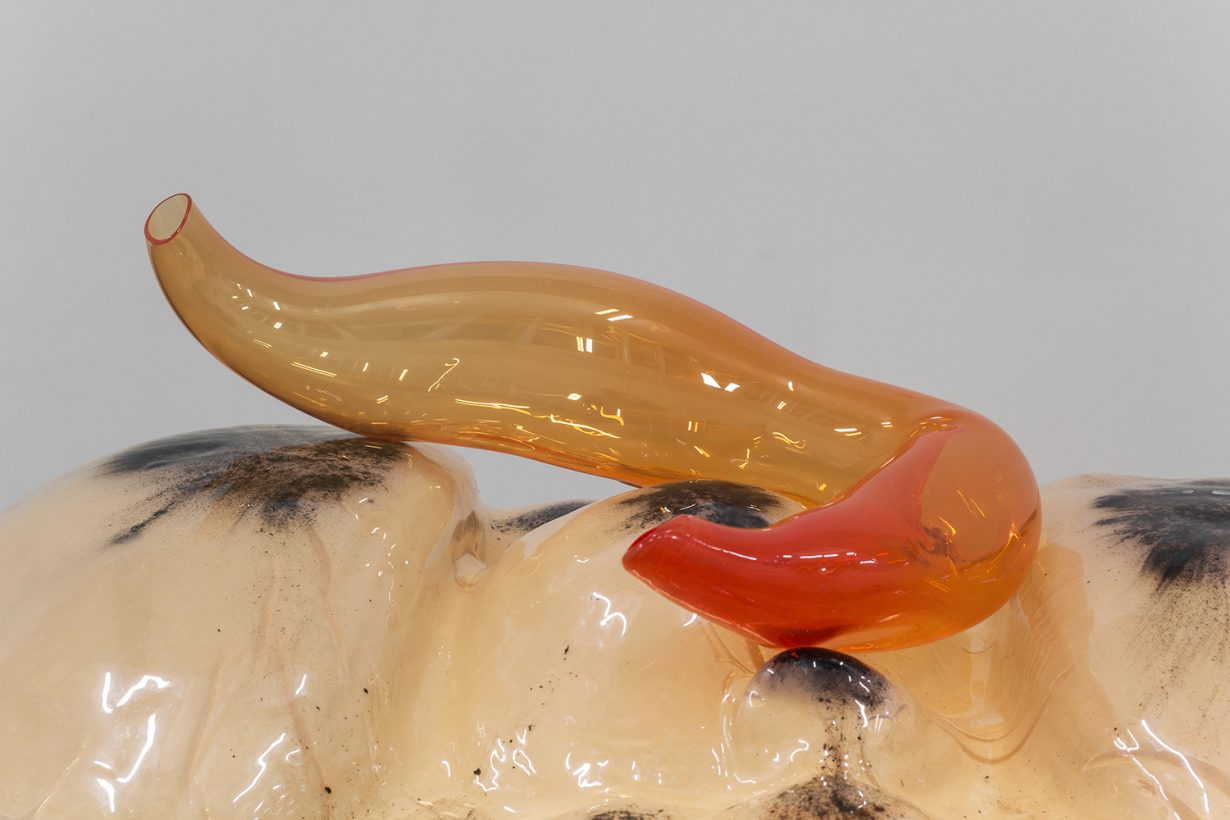
While the show was still open, I noticed posters going up around the German capital – taking advantage of a pandemic-pressured health- care system – advertising the convenience of getting consultations and prescriptions online. Why bother schlepping to a doctor when this is more convenient and safer, was the gist. Of course, someone is making money from virtualised and quantified healthcare, and someone – the patient – is perhaps being cared for less, even as technocratic hype increasingly insinuates that, as with self-driving cars, AIs can diagnose better than overstressed human doctors. Absent Touch, as is the artists’ wont, extrapolated this into a hallucinatory future.
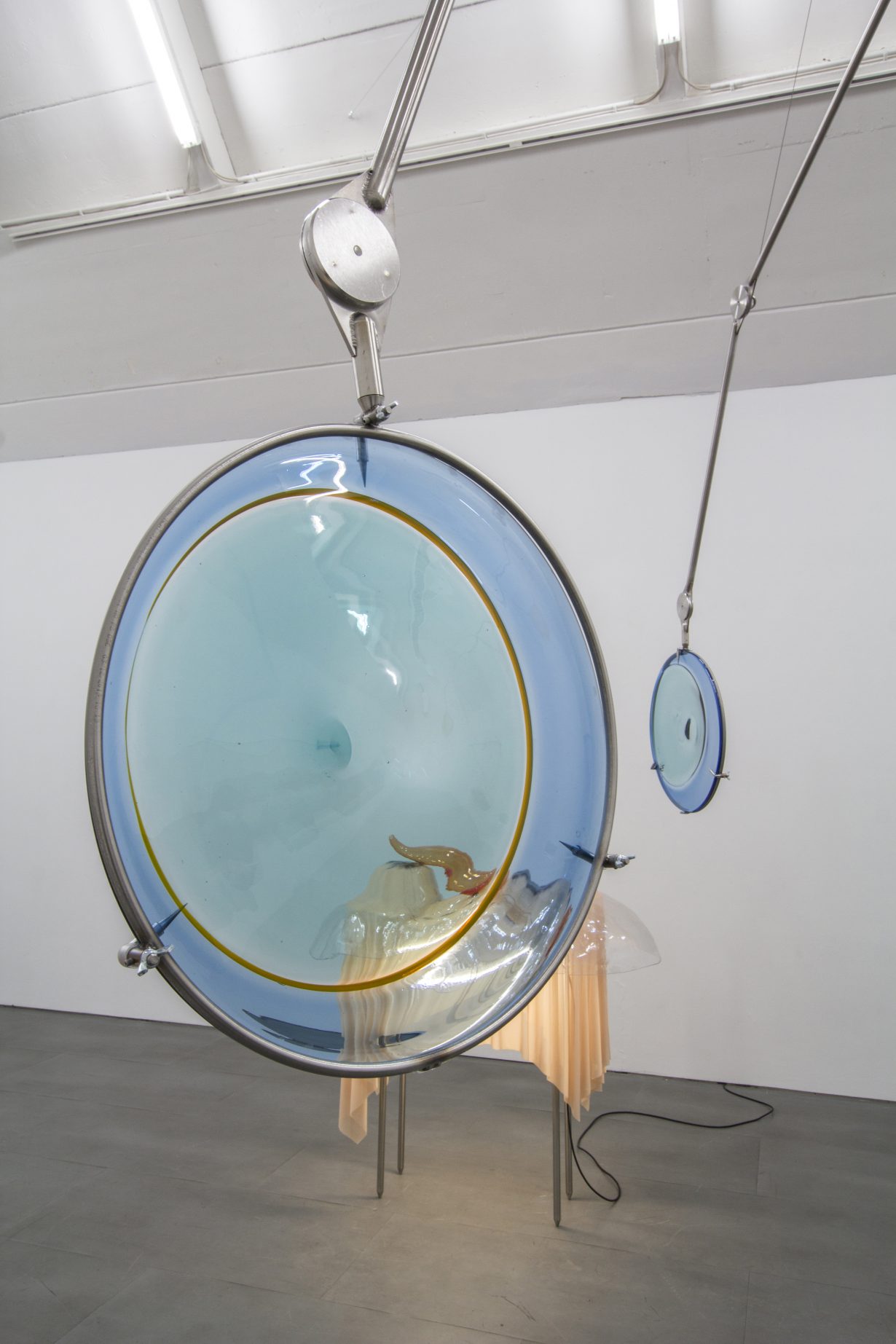
The refusal to judge whether something problematic in the world is good or bad is, of course, an artistic strategy going back to Andy Warhol at least, and in the grander tradition of art asking questions, and thus stimulating thought, rather than delivering answers and shutting thought down. It’s notable that a lot of Pakui Hardware’s art is literally suspended – from the ceiling – because it is also conceptually so; it presents an aesthetics of entanglement in which positives of scientific progress – life extension, say – are indivisible from the negatives of neoliberal biopower and the lure of scientism. In February, American scientists announced that they’d developed a wearable, a ring or bracelet containing thermo-electric chips, that allows human bodies to work as, yes, batteries for other hardware. What do you think of that? Amid all their equivocal medicinal scenarios, Pakui Hardware argue most persuasively for the preservation of one organ for as long as possible: your brain.
Pakui Hardware: Virtual Care is on view at Baltic, Gateshead, May – 3 October
